Time for Change: Apprenticeships for All
November 16, 2020

It was a great pleasure to participate in the recent Amazing Apprenticeships webinar about widening participation in apprenticeships for people with learning difficulties, disabilities and health conditions.
The Open University is well suited to the needs of students with declared disabilities. We’re flexible and supportive, delivering blended learning at a pace and place that meets their individual needs.
Over 27,000 students who have declared a disability choose to study with us – representing 10% of all HE students with a disability study in the UK – and we have a strong track record of helping people overcome barriers and unlock their potential.
I joined two tireless campaigners for widening access – Anna Morrison from Amazing Apprenticeships and Rabia Lemahieu from Disability Rights UK – to explore how we can close the disability employment gap through apprenticeships, especially at a time of such crisis in the labour market.
The disability apprenticeship gap
1 in 5 of all working age adults in the UK declare a disability but only around 12% of all apprentices declare a disability, which shows people of working age with a disability are under-represented in apprenticeship programmes.
This may be because apprenticeships are employer-led and the figures represent the diversity – or lack of – in the workforce as a whole. But there is clearly more to be done to reach, recruit and retain apprentices with a disability.
Recognising that there is more work needed across the whole sector to make apprenticeships more representative, in 2019 the OU commissioned a survey of over 700 employers in England on their perceptions of disability and apprenticeships, culminating in the Access to Apprenticeships report.
It focused on employers’ attitudes to hiring apprentices, the barriers employers faced and the opportunities that exist to make improvements to the current apprenticeship system in England. The idea was to create a debate amongst governments, employers, training providers and charities about what more we can do.
The report found a real desire to recruit and support apprentices with declared disabilities:
-
- Two thirds of businesses stated that recruiting people with a disability was an important part of their hiring plans
-
- 38% of businesses report that they had already actively started to recruit more people with disabilities over the past three years
However:
-
- 18% of employers were not using external support or partners to recruit or retain apprentices with disabilities. Of these, 43% of these employers were unaware of the support available to them or were unclear how to access it – including Access to Work
-
- 1 in 5 employers were unclear on the financial support available from the Education and Skills Funding Agency (ESFA)
-
- 47% wanted more internal support – whether that be senior buy in, support from line managers or more/better inclusivity training and support for all staff.
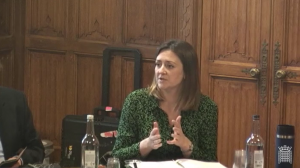
Recommendations for action
To achieve real change to access and diversity in apprenticeships, it will take a concerted effort from all stakeholders in the process: employers, training providers and Government. Here are four key themes we explored in the webinar which can perhaps positively impact on the recruitment and retention of apprentices with disabilities in England.
1. GOVERNMENT
Right now, there is an opportunity for the UK Government to do more to support diversity in apprenticeships in England and we’re keen to maximise on that. Improving the apprenticeship levy was a key commitment the Government’s manifesto, and apprenticeships are also a key element of the plan to ‘Build Back Better’ post-pandemic. So how can they help?
The skills framework – Instead of a ‘ladder of opportunity’ with one route into learning, we encourage the Government to create a ‘climbing frame’ with multiple entry and exit points to move around the skills system, in a connected and coherent framework. This ability to hop on, and hop off, in a flexible way could better support widening access.
Targets and data – Could the UK Government set more ambitious targets for recruitment of apprentices with disabilities? A National Audit Office report in 2019 recommended ‘that the Department’s targets for widening participation among under-represented groups lack ambition… and the targets are not stretching’.
Levy incentives – Thirdly, there is a lot of debate out there in whether the funding of the levy in England should be structured in a way to incentivise certain types of learners into apprenticeships.
2. FUNDING
Our Access to Apprenticeship report found that employers reported a real lack of information and clarity about what funding is available to support learners, employers and training providers.
It’s not a simple system, for example, many reported they had little understanding of what evidence is acceptable to the ESFA in order to claim Additional Learning Support funding.
This is something that the Learning and Work Institute also found in a joint research project with the Department for Education in 2018 so it’s clearly still an issue.
3. FLEXIBILITY AND CHOICE
Another way to help widen access and support more people with declared disabilities is to look at the structure of the apprenticeship programme. For example:
Choice of training provider – Providing the employer and apprentice with a real choice of training providers, based on their individual needs. Considerations could include: the support the training provider can offer, the types of communities and support networks they create, and the model of the programme they offer (e.g. on campus, distance learning or blended). We find many employers work with us, for example, as our flexible model of learning supports a wide variety of learners with a wide variety of needs.
Part-time apprenticeships – Whilst there are challenges at offering these for degree apprenticeships, admittedly, it might be worth exploring some of the pilot outcomes from Timewise in 2019. They focused on part-time apprenticeships for lower levels, with interesting results.
4. EMPLOYER
As the apprenticeship levy is ultimately employer-led, they are the ones that can arguably make the biggest difference, in partnership with the training provider.
Best practice from employers usually includes not only a good diversity programme, but also an inclusion programme. Support from line managers is crucial to support genuine culture change to ensure that apprentices from all backgrounds are supported and feel included and valued, having their needs met and adjustments provided.
It was heartening to be joined online by so many supportive and engaged employers for the webinar. I genuinely believe that we can, and should, us this as a point in time to take stock and double our efforts to help close the disability employment gap and use apprenticeships as a key tool to take people as far as their talents can take them.
One of the main tips we learnt from the Access to Apprenticeship report is to make use of the many third party organisations that exist. In particular look at Mencap, Mind, Disability Rights UK and Amazing Apprenticeships new Genie Programme, which will help employers build competence to widen access to apprenticeships.
To download the report please visit: http://www.open.ac.uk/business/access-to-apprenticeships
Alternatively, please get in touch: [email protected]. I’d love to hear from you.
Find out more about Genie, The GENuine Interest in Equality Programme and find out how you and your organisation can get involved here.
Latest News
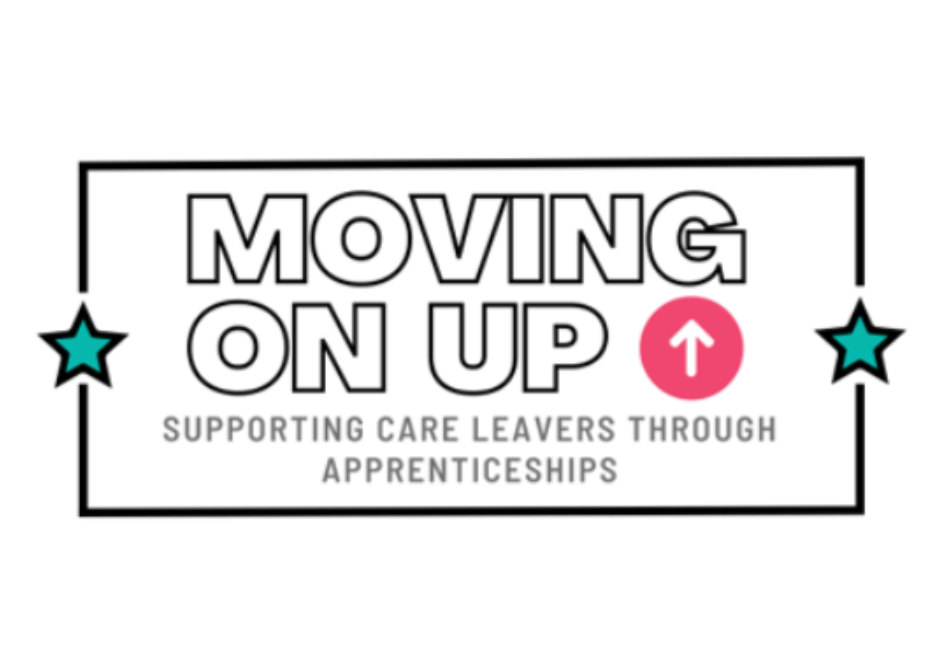
March 13, 2025
Moving On Up Network receives special message from Jacqui Smith, Skills Minister
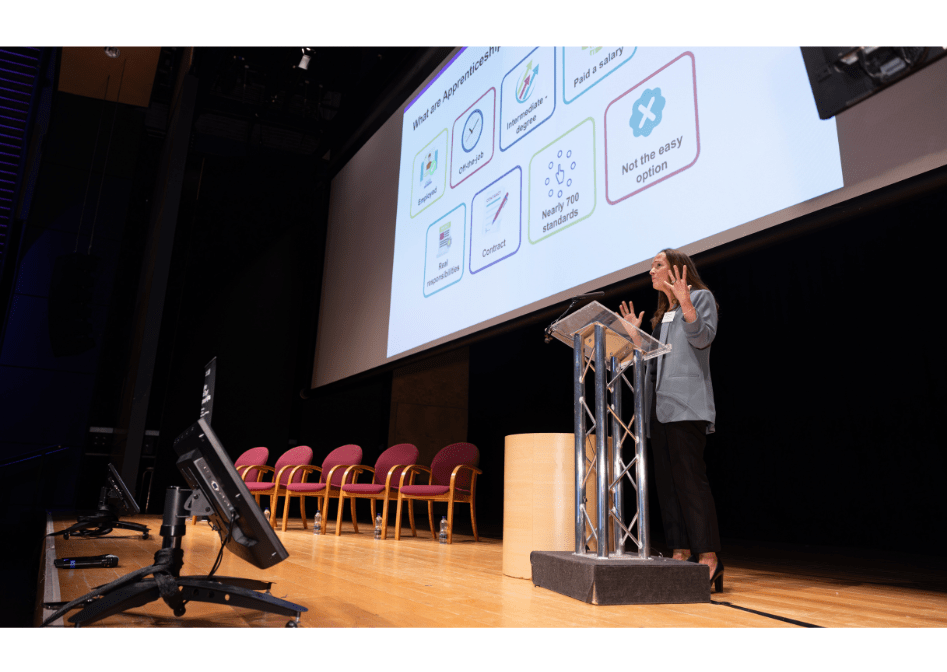
February 24, 2025
Cutting Through The Complexities Of Apprenticeships
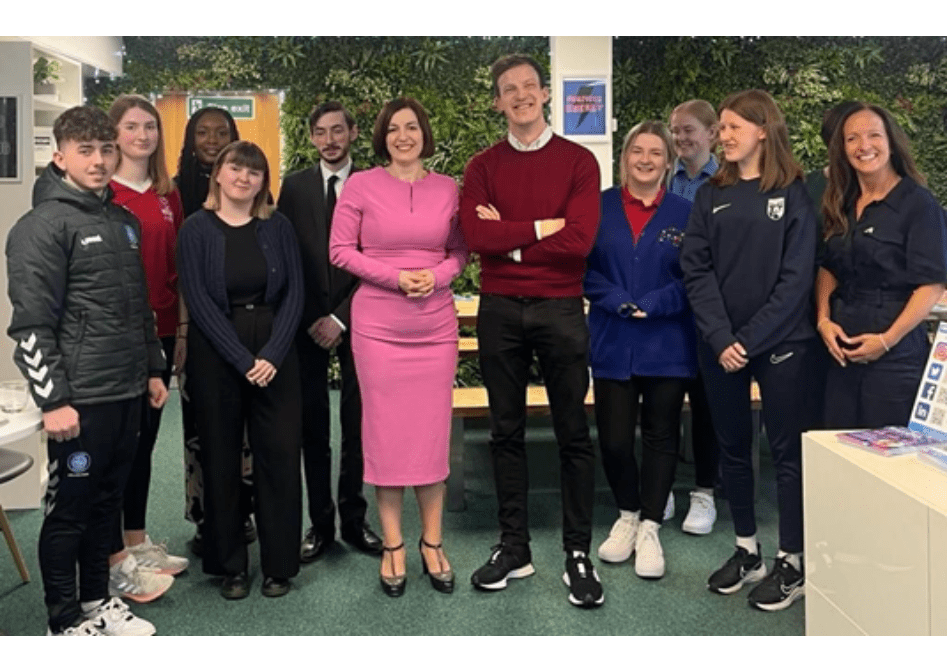
February 17, 2025
Amazing Apprenticeships’ special mention in Parliament
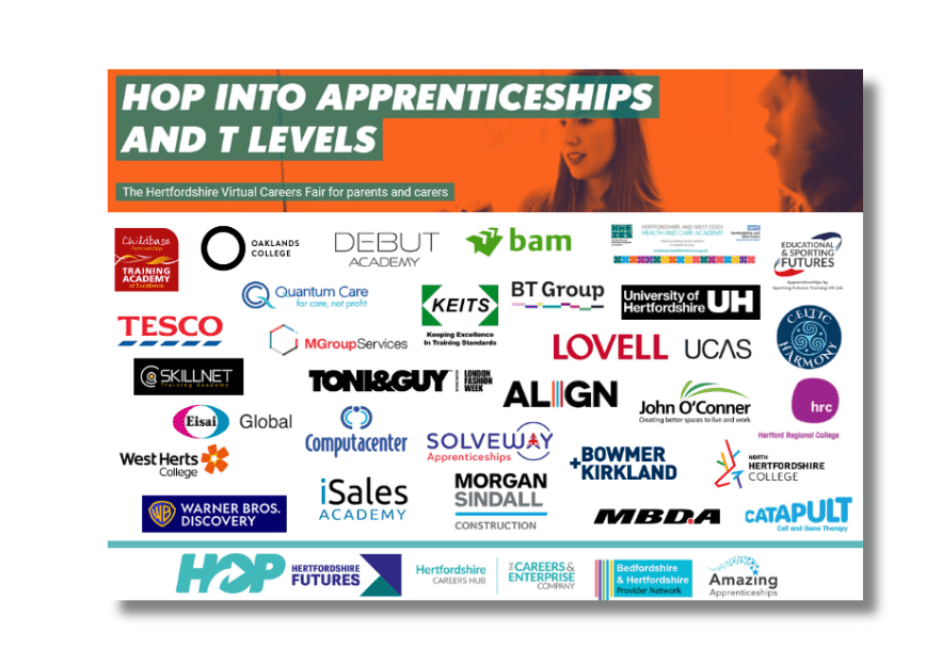
February 17, 2025
Exploring Opportunities in Hertfordshire
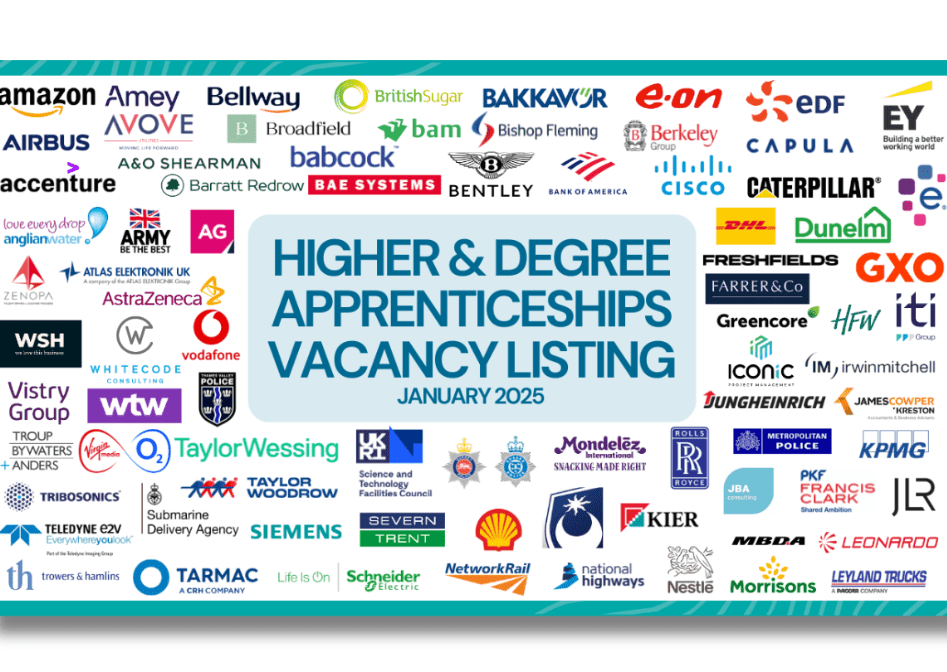
February 17, 2025
2,400 vacancies from over 80 leading employers – The January listing is here!
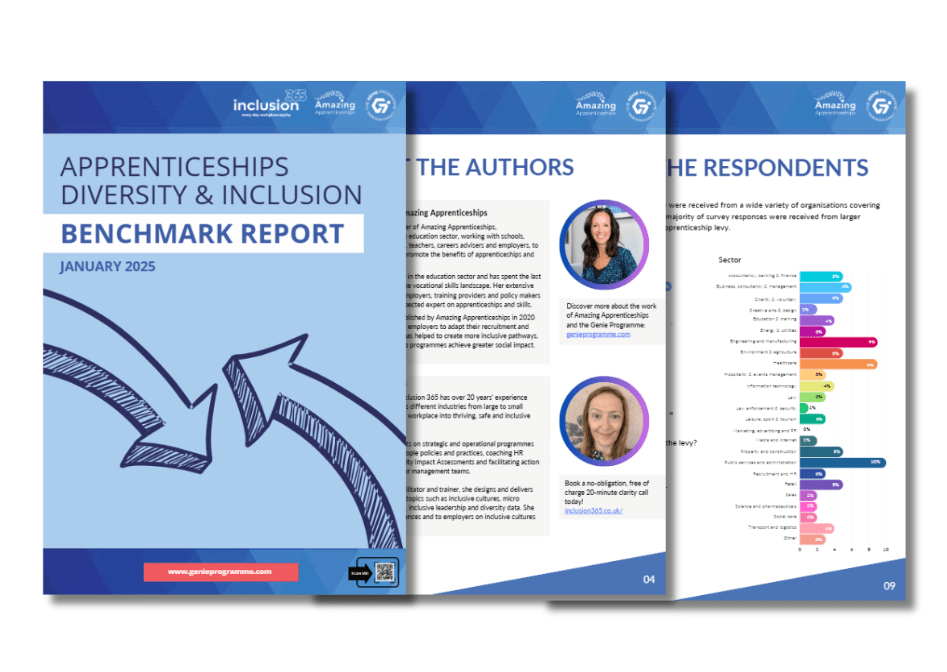
February 03, 2025